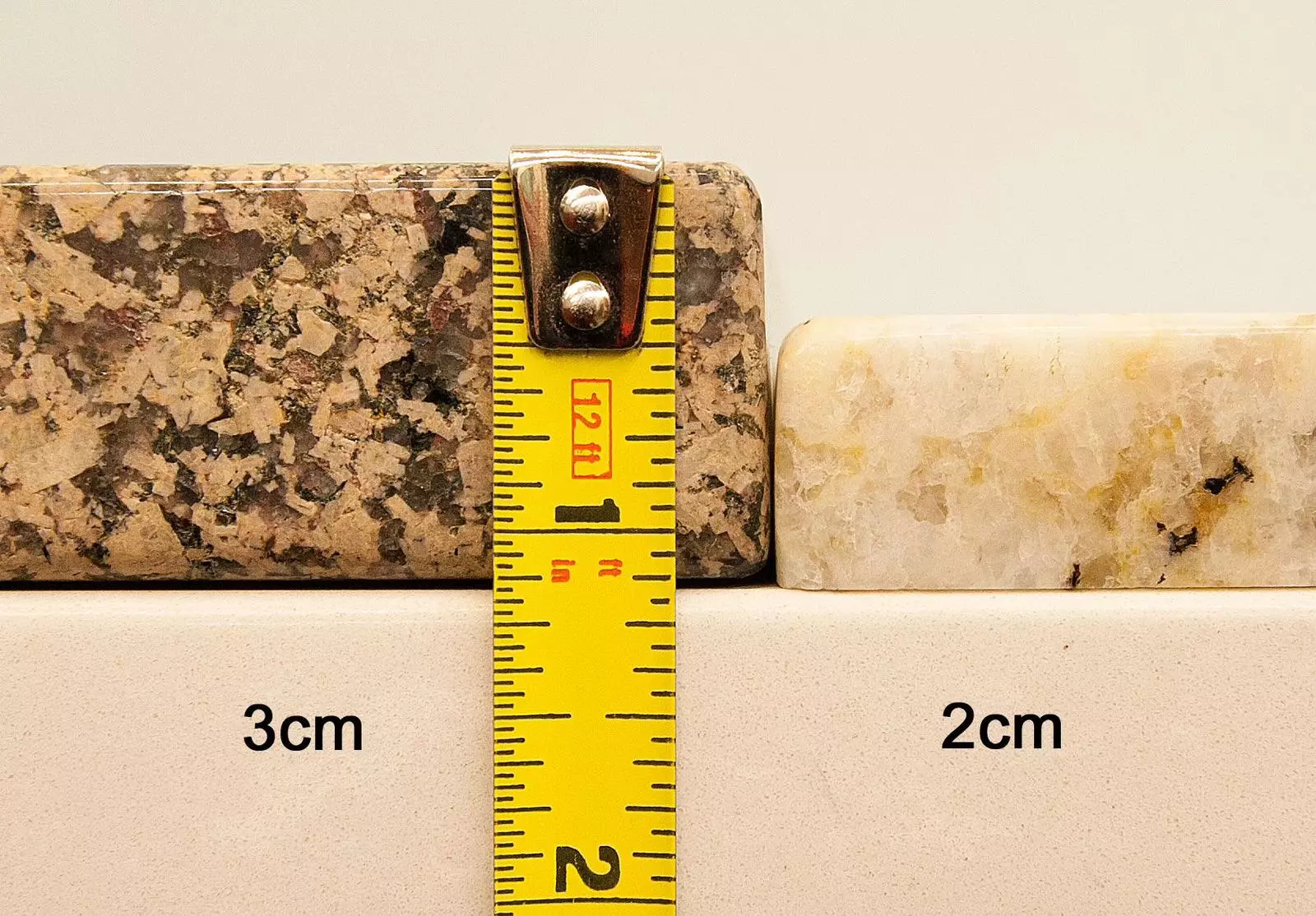The Standard Thickness of Kitchen Countertops
When it comes to designing or renovating a kitchen, one of the crucial decisions to make is the selection of the right countertop. Countertops not only serve as functional work surfaces but also contribute significantly to the overall aesthetic of the kitchen. However, determining the appropriate thickness of the countertop is often overlooked. In this article, we will delve into the standard thickness of kitchen countertops and the factors to consider when making this important choice.
Standard Thickness Options
The standard thickness for kitchen countertops typically ranges from 2 cm to 3 cm. This range is widely accepted and readily available, making it the most popular choice for homeowners and designers alike. Countertops at this thickness strike a balance between durability, aesthetics, and cost-effectiveness.
For those seeking a more substantial and luxurious appearance, thicker countertops measuring 5 cm or more (2 inches) are also available. These thicker options provide a solid, high-end look and are often used for kitchen islands and statement pieces within the kitchen.
Conversely, thinner countertops, such as those measuring 2cm , are also available. While these thinner options can create a sleek and modern aesthetic, they are less common in traditional kitchen designs and may require additional support to prevent sagging.
Factors to Consider
1. Aesthetic Preferences: The thickness of the countertop can significantly impact the overall look and feel of the kitchen. Thicker countertops often convey a sense of luxury and solidity, while thinner options can create a more streamlined and contemporary appearance.
2. Practicality and Durability: Thicker countertops are generally more durable and less prone to damage from heavy use. They can also withstand the installation of heavy appliances, such as built-in stoves or sinks, without additional support. Thinner countertops may be more susceptible to chipping or cracking and could require extra care and maintenance.
3. Cost: Thicker countertops typically require more material and may involve additional fabrication steps, making them more expensive than their thinner counterparts. Homeowners should consider their budget when selecting the appropriate thickness for their countertops.
4. Support and Installation: Thicker countertops may require additional structural support, especially for overhangs and cantilevered sections. It’s essential to consult with a professional installer to ensure that the chosen thickness is suitable for the kitchen layout and design.
In conclusion, the standard thickness of kitchen countertops generally falls within the range of 2cm -3cm, offering a versatile and widely accepted option for most kitchen designs. When selecting the thickness of your countertops, it’s important to consider both aesthetic preferences and practical concerns to ensure that your choice aligns with your overall design vision and functional needs. To find the best choice for your project contact one of our Allied Gallery sales reps.

